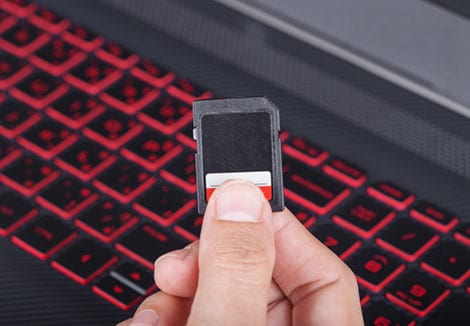
There are a lot of different rules you have to keep in mind when you’re buying notes because there’s a lot of moving parts to the note business and lots of nuts and bolts. There are a lot of them, but these are probably the ten biggest ones you need to keep in mind when you’re looking at buying distressed notes. This is just a start to get more information to understand things a little better. Grab a pen and paper and write these Ten Note Commandments down so that you’re rock and rolling.
—
Listen to the podcast here
Ten Note Commandments
I had the idea to do the Ten Note Commandments. If you’re listening to this, you probably want to grab a pen and paper. Write some of these Ten Note Commandments down so that you’re rock and rolling. There are a lot of different rules you have to keep in mind when you’re buying notes. There are a lot of commandments but these are probably the ten biggest ones you need to keep in mind when you’re looking at buying distressed notes. It’s a little bit different for the first versus second. I focused on the first side. That’s what we’re going to talk about basically.
The number ten commandment is if you’re going to be a note investor, you’ve got to look outside your own market. You’re going to see deals, but most of them are not going to be in your backyard. Look outside your own market for number ten. I live in Austin, Texas. I haven’t bought anything here in years because it’s an overpriced, crazy market, and there’s very little inventory because we’ve got a very booming market. The thing is you can’t find stuff in Dallas. I’m not saying you can’t find stuff in Houston. We just don’t see that much stuff in Austin.
Ideally, if you live in a state like Ohio or Michigan or Indiana or Illinois, you may have enough inventory in your backyard to be able to find that. If you’re in California, Arizona, even Florida, you don’t see that much stuff. You probably got to look to buy in a couple of different states. As a new note investor, look to buy outside of your own backyard. If you’re just looking to stay in your immediate back yard, your immediate city, you’re probably going to go broke in the long run. That’s number ten. Keep that line initially. If that’s not something you don’t want to do, then the note business is not for you.
Number nine is a very important one. If you start buying notes, make sure you don’t self-service your own loans. Those self-services always end up screwing crap up. What I mean by self-servicing, you’re the ones mailing out checks, you’re the one mailing out statements each month, you’re taking all the surfacing phone calls. You try to save money because, “I’m in a state where I don’t have to be a licensed servicer to collect debt.” There are some states like that, Texas being one of those states. You don’t have to be a licensed servicer. That doesn’t mean it’s a good thing to do. The service and the cost of Madison Management and other loan servicers do for you. It’s the whole CYA. That’s your fee every month to cover your assets. Don’t self-service. We find people self-servicing and were like, “You’re going to get in trouble and it’s going to be a bad thing.” You’d ended up doing something stupid that you shouldn’t do, and an attorney is going to own your ass on behalf of the bar. Don’t do number nine.
Number eight falls in line with number nine. It comes down to hiring professionals, hiring attorneys to start foreclosure. Go ahead and start it but it doesn’t mean you can’t stop it or suspended it. If a bar reaches out to you, go ahead and stop in late for a little while. Give them the opportunity that they’re willing to do a trial payment plan or a loan modification or cash for keys. If there’s a family, the deceased didn’t get noticed, that’s fine. It’s okay to suspend it, but you always hire attorneys to start to foreclosure or start the eviction of the cancellation of contracts. Do not sit around and wait for that to happen.
It’s a process to foreclose. Some states take a year. You might as well start it. You can only suspend it, delay it and then pick it back up at a later date. People will wait around and go like, “I don’t want to give you a training $1,500.” Go ahead and do it. Trust me, especially when you’re buying in a couple states. Oftentimes people are like, “I don’t know if I can do that. I don’t necessarily want to hire attorneys just because I think I’m better.” You’re doing the workouts. See number nine and understand that your value is more than $7.50, $15, $20 an hour person.
Number seven is to help you scale and use other people’s money. You’ve often heard in the Ten Crack Commandments, number one is don’t get high in your own supply. Don’t fund with your own supply as well. There’s so much private capital out there that’s available to you in IRAs, money in CD’s making less than 1% or a fraction of 1%. You’ve got to get the word out on what you’re doing to help people understand the opportunities that you’re offering. Use other people’s money is the seventh rule when it comes to the Ten Note Commandments.
Number six is something I’m well-known for that everybody is getting better there. Our students do a great job of this and it’s all about marketing. Marketing drives everything. I’m not talking about marketing the old way that most real estate investors are used to doing it. Most people are used to the whole yellow letters or postcards or the door knocking or dropping out letters to the foreclosure list. That’s not the smartest thing to do. We don’t do that in the note business. It doesn’t make sense for us to do it because it’s not an effective use of our time. If you learn how to market properly to asset managers and for private capital, this becomes a very easy business. If you learn how to market directly to banks or hedge funds, they’ll be sending you lists on a weekly basis.

Ten Note Commandments: Marketing is the link that drives everything in the note business.
You don’t have to worry about complaining or going to websites where the low hanging crew is that along with marketing, you’re also reaching out online. You’re also reaching out to your database. You’re building your own tribe. Literally, marketing is the link that drives everything in the note business. If you are wealthy off or privately funded yourself, good for you, you’re the anomaly. Most people aren’t that way. Most people are coming from a job that they hate, they’re just over broke and they need to learn how to do things. The one thing that makes us all equal is our ability to market. In today’s society, it’s so easy to market to you. For a few bucks, you’d have a MailChimp account, you can pull lists, you can reach out to people and know your networking events, pull databases. You can jump on Facebook and start making an audience for free.
The minute you start to realize that that’s marketing that drives everything, not the real estate aspect of this thing, your business becomes a whole lot easier. You’ll understand it and be a whole lot more successful. If you have a marketing first attitude versus a real estate first attitude, you’ll be a lot more successful. It’s not saying real estate is not the most important thing. It’s not important, you have to focus on getting an account because potentially marketing, you don’t have time to take care of the leads given you. You’ve got to have a good balance of that, but also that’s the great thing about marketing, especially marketing smart.
You’re going to adjust down and you turn it up by using the electronic tools that are available to you versus if you’re just sending out postcards. You have got to keep constantly dropping 5,000 postcards a week or a month to ensure that you’re getting phone calls or hire an outbound sales team. That’s not what you want to do in the note business. We’ve got some students that have evolved from the fix and flip or the private lending side. They’re using their people to reach out to asset managers, which is great, but that’s still marketing. Marketing comes first, that drives the whole business.
Number five, no files equal no funding. This is hard for a lot of people to do, to understand. This all comes down to CYA, cover your assets. If you are making bids and you’re making offers, you don’t send money until you actually have at least the soft copies of the collateral in your hands. You literally don’t fund until you have the collateral files in your hand, I’m talking about the electronic. You don’t have the physical ones yet. The beautiful thing is that way you make sure you have something. There have been too many people out there taking advantage of or, “I’m going to wire and the seller or the hedge funds will send you the link to the collateral files after you fund.” You want to make sure to review these collateral files before you fund. If you don’t get no files, no funding.
If you send no paper, we no pay. It doesn’t mean you get it today and you fund immediately in the next minute. You’ve got to have time to look at the collateral. You have time to review the collateral files, making sure there’s stuff there, making sure that the actual full files or there’s not an empty file folder. It doesn’t mean when you get the hard files and stuff won’t be missing. It happens all the time as files get sold, stuff gets scanned, stuff doesn’t get scanned, stuff doesn’t make it into the file folders. It is a natural bit of the business, but everything can be corrected. You got to make sure that there’s still a file to begin with. If the file is missing, it becomes hard to collect on that debt, on that note aspect of it. That’s why number five is where it’s at. No files, no funding.
Number four, one of the major ones is always check the title, O&E reports. That’s one of the most important things you can do to ensure your investment is good, to protect your investment or your investor’s money. Use to pull out O&E reports. What is O&E? Ownership and Encumbrance report. This is not a full title report. It’s cheaper than a full title report. You don’t need to know the whole title of the property going back to when it was created or built. What you need to now is basically the last two owners of that asset, especially you’re buying bank owned or bank originated or institution and originated paper.
Because at some point, title had to be clear for the bank to make the original loan. You need to do it back, usually to a lender who usually work in O&Es. It’s going to run you about $85. A full file report would be $125 or more depending on how remote the areas. If it takes a long time to pull title, it’s probably a good idea not to buy that asset. It’s not like it’s some small rural county that it takes forever to get title report folder, O&E report folder, it’s probably best to kill it. That’s number four, always check title and pull O&Es is one of the important aspects to change in keeping your business.
Number three is always check taxes and this means call. You can jump online, and check taxes owed. I always get online, check it online or going to the county tax office to check. Sometimes you’ve got to pay a little fee, but it’s always best, especially on the front end, to pick up the phone and call. Find out if there’s a tax sale, find out if the taxes were ever sold, especially the borrower’s name does not match up with the loan docs or what’s on the spreadsheet for you, that’s one of the most important red flags. If the borrower’s name is John Smith on the loan paperwork you got, and it shows that in the accounting it’s Steven Johnson or something else, it’s a big red flag. You got to double check it. Call and make sure there’s not a tax sale or pending tax sale. Make sure if there is a redemption period or is there tax over by calling and taking that one extra step. You can often find overages or realize, “This one is to tax sale. It’s not worth me spending any more time on this asset. Let me go ahead and kill this one so I’m not wasting time and energy going forward.”
Number two is a no brainer but unfortunately, I only wish everybody understood this. Know your property value because that’s the one biggest thing that will always secure your investment, for the most part, right off the bat like, “House is worth 100. I’m picking this note up for 50. Loan is 120.” I’m not talking Zillow and Trulia. Those will work when you’re doing your initial front-end due diligence. Before you fund, you better make sure you’ve got a true value of what we’re talking about. The only way to get true value of a property is to have a realtor or desktop CMA and take a look at it. Hire professionals to do it. Let them do their job. They often will know neighborhoods in new values and “No, that’s a good area,” “I know that’s a bad area,” “Beware, buyer. Beware.” You have got to have your foot soldiers working for you in realtors are on the frontlines every day. Talk to those people, making important to deal with them, build relationships with realtors and markets. They’ll help you know your property values much faster and much more accurate than a BPO or a desktop CMA will do. They will often sometimes provide you with great information that you can use going back to the hedge fund or the bank.
Number one is a direct correspondent to number two. Always put eyes on an asset. Always let somebody go by the actual asset and take pictures of the property, make sure it’s still there, make sure it’s the address. Sometimes you’ll always be able to get a realtor to go out and do that, but you always should have somebody to put eyes on an asset. Obviously, you’re buying in bulk. A lot of times you may not be to get all of them, but security the majority of your pool by putting eyes on the asset. If you jump online and see photos that are in the last couple months on Zillow, great if it’s there, but if it’s beyond 90 days on a Zillow photo, you’d better get somebody to drive by and take photos of it. That’s not so hard, you jump up on Craigslist and offer up somebody $50 drive by, take some photos, and send it to you. One of the most important things when you agree to buy in an area, jump on a plane, fly southwest in an area to spend a day or two, driving around, and looking at some assets. Especially, when you’re buying in one or two particular states.
Ten Note Commandments. Ten, look outside your backyard, looked at by another markets. Nine, don’t sell service. Use professionals like Madison Management to help you surfacing. Eight, hire attorneys. Get that process started, hire special service or hire professionals to help you keep the heat to the borrowers. Number seven, use other people’s money, go out to the quest IRA events. Go out and network to local self-directed IRA companies because they will often have great people there that have money that are looking to invest. Six, marketing drives everything. Learn to market. It makes business a whole lot easier. I know people get so excited about going online, looking at property, but if it comes to a standstill like, “I don’t know what to do next, what do I do now? What do I say? How do I talk to people?” Learn marketing campaign. The minute I learned marketing, my business exploded exponentially.

Ten Note Commandments: Always be sure that you get a soft copy of the collateral file before you fund.
Number five, no files, no funding. Always be sure that you get a soft copy of the collateral file before you fund. This is a requirement, you don’t find until you get copies of the collateral file, whether it’s a one asset or 100 assets. If you got one asset, you’re buying a one off, get the collateral files, it doesn’t take long to review the collateral file per asset. Ten minutes, fifteen, not too hard. If you’re going to read from start to finish, then you’d better acquire beforehand. Four, check title, always order O&E reports, Ownership and Encumbrance Reports.
Our favorite is ProTitleUSA. Alex Goldovsky does an amazing job with his business and knows investors all across the country. Number three, one of the most important things you can do where a lot of people goof up on, they don’t check taxes properly. Jump online, check what’s up, but then pick up the phone and make a phone call to the tax office to find out exactly of what’s up. If there’s no tax sale, any payment plan, if they had gone to tax sale, is there a redemption period, any overages out there. There’s a lot of opportunity to make sure you’re doing a good deal versus a bad deal.
Number two, know your values. Know what the asset is actually worth. I always find out when I talk to people and they’re like, “It’s somewhere between $40,000 and $80,000, I’m like, “That’s not knowing your values.” It’s a whole difference to it. What does online value say, have you had a realtor drive by? Have you jumped on like note pros pulling online valuation? Have you talked to a realtor to drive buy? Anything else to help you out with that. Have you run a PRP report? The best way to know values is to have pull off the MLs and pull comps, what’s sold in the last 90 days, your pending, your sold and your actives.
One thing you have to keep in mind if it’s in a distressed market at 30-day quick sale price is different than a traditional 90-day listing. The 30-day quick surprise can be a lot cheaper than when a 90-day sale prices. In some markets everything’s moving so fast, so it doesn’t matter, but where the market’s dragging a little bit, here’s a ton of inventory. Expect that 90-day price, try to get a bid where the 30-day make sense for it by guaranteeing a lot of times the asset managers are going to look at the 90-day price and that’s going to be their value, they’re not going to get it off at 30-day. Number one, always put eyes on an asset. Whether you’re hiring somebody, a photographer, your cousin, getting a bar, get somebody nearby to go by and take photos of the assets.
They said “I had a bid in a house that burned out. Realtor sent photos, that’s worth paying $50 to S100 to save you for making a big investment and a mistake there.” Void the mistakes because you put eyes on the assets, eyes on the prize. Anything that didn’t come here, I could have thrown in here, I always buy an owner occupied. That would have been a number eleven. I like buying owner occupied because the fact is you’ve got more exit strategies and if it’s occupied you’re probably going to have the air conditioning, the power cords, electrical cords, or copper gobbles have not been stolen. That’s some great things to keep in mind. That would have been number eleven, for the most part.
There’s a lot of moving parts to the note business, lots of nuts and bolts. These are the best ten or eleven that I can tell you that I think are the most important for you. This is just a start to get more information to understand things a little better. You might want to check out our upcoming virtual Note Buying Workshop. Just go to WeCloseNotes.com to get signed up for it there as well. I appreciate it. That is what we’ve got for you in this episode, the Ten Note Commandments. These are important, write them down, learn them. These should be on your checklist that you’re checking on a deal by deal basis. Otherwise, go out and make something happen.

